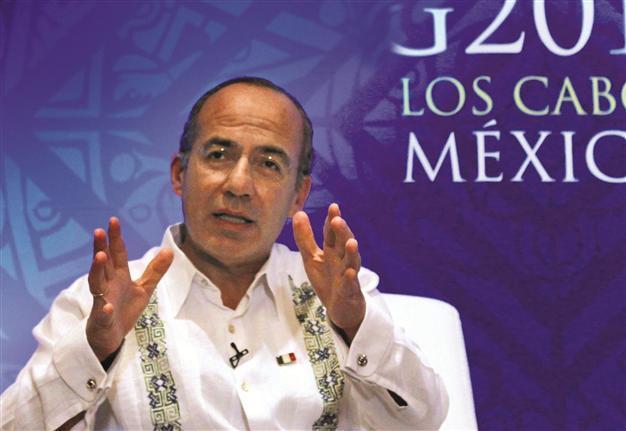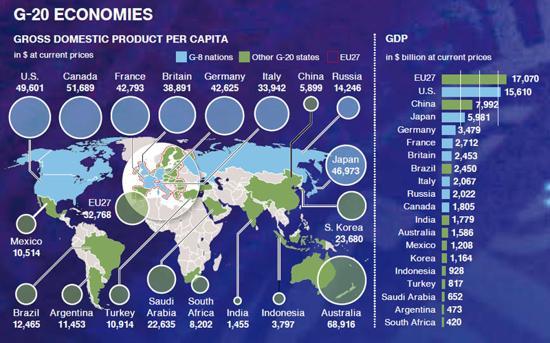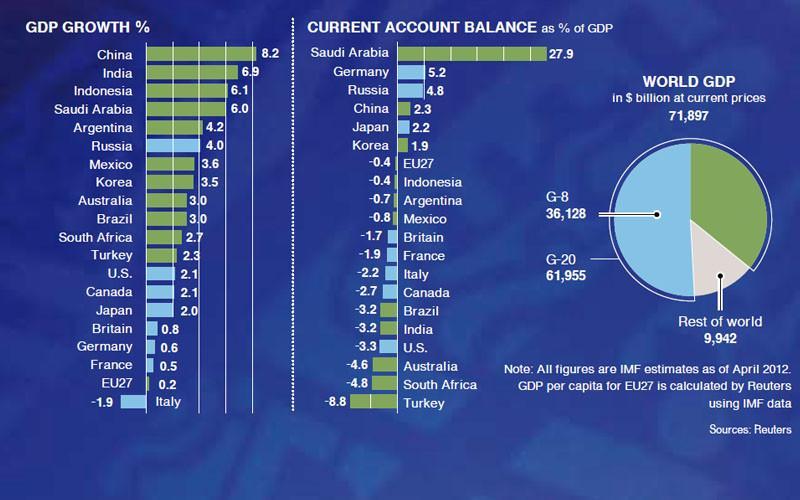Euro crisis to mark Mexico G-20 meet
LOS ANGELES

Mexican President Felipe Calderon hosts the G-20 summit in his country. REUTERS Photo
The Group of 20 bloc leaders from the world’s greatest economic powers, also known as the G-20, will meet starting from today in the Mexican resort of Los Cabos to once again confront the eurozone’s crippling debt crisis.Summit host President Felipe Calderon hoped to broaden the agenda to address global growth, but all eyes will be on elections in Greece, where voters have threatened to reject the terms of their bail-out package.
Turkish Prime Minister Recep Tayyip Erdoğan, Deputy Prime Minister Ali Babacan, Foreign Minister Ahmet Davutoğlu and Finance Minister Mehmet Şimşek will represent the country at the event.
The Union of Chamber and Commodity Exchanges (TOBB) participated in the simultaneous Business World Summit (B-20) of G-20.
It appears the European economy tops the agenda of the Mexico meeting for the G-20 countries, which include Argentina, Australia, Brazil, Britain, Canada, China, France, Germany, India, Indonesia, Italy, Japan, Mexico, Russia, Saudi Arabia, South Africa, South Korea, Turkey and the United States.

Lehmans moment
Outgoing World Bank president Robert Zoellick warned that Europe was facing a “Lehmans moment” and the collapse of the euro currency could trigger a global crisis, in an interview out yesterday.
Zoellick will warn the G-20 summit that Europe risks sparking a financial meltdown which would have desperate consequences for developing countries, he told the British newspaper The Observer.
“Europe may be able to muddle through but the risk is rising,” the 58-year-old American said. “There could be a Lehmans moment if things are not properly handled.”
The 2008 collapse of the U.S. financial services firm Lehman Brothers — at the time one of Wall Street’s most prestigious companies — after risky bets it had placed on the U.S. housing market soured, sparked global financial panic.
Zoellick said developing nations needed to “prepare for the uncertainty coming out of the eurozone and the wider financial markets.”
“It will be better if they can avoid piling up short-term debts that can come due in volatile periods and look to the fundamentals of future growth — infrastructure and human capital.”
Zoellick, who steps down at the end of June after five years in charge, said the World Bank was taking action to prevent a credit crunch in southeast Europe and to protect north African states that were exposed to Europe’s debt crisis.

Greece should be given a chance to renegotiate the terms of its 130 billion euro international bailout if it means keeping the country in the eurozone, the head of the Organization for Economic Cooperation and Development (OECD) said a day earlier. Angel Gurria, secretary general of the Paris-based OECD, said if the next Greek government opted to stay in the single currency bloc, it was likely to seek to renegotiate the terms of the European Union/International Monetary Fund rescue.
“It is a scenario I see [as] likely and if that is the condition presented for Greece to stay and then move on, I would say it is probably something that should be attempted,” he said in an interview ahead of a the G-20 summit in Mexico, Reuters said.
















